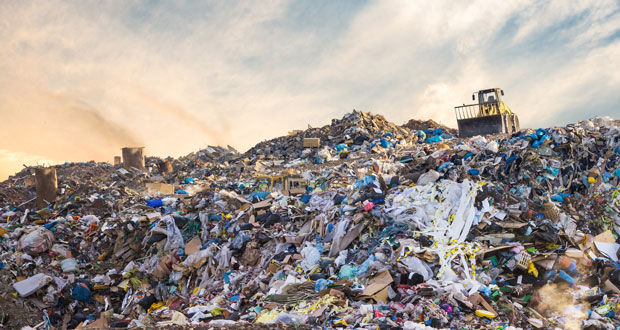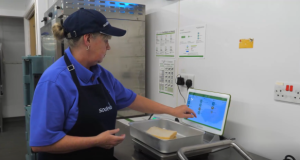 Zero waste to landfill offers businesses the chance to reduce costs, meet targets and show that they are serious about sustainability. Emily Hare at Valpak by Reconomy explains how to prepare
Zero waste to landfill offers businesses the chance to reduce costs, meet targets and show that they are serious about sustainability. Emily Hare at Valpak by Reconomy explains how to prepare
Over 40 million tonnes of waste are produced by UK industry each year. Dealing with this waste comes at a cost both to business and to the environment, so businesses that choose to pursue zero waste to landfill are taking advantage of a valuable opportunity to reduce costs, meet ESG targets and demonstrate their sustainable credentials.
LEGISLATIVE REQUIREMENTS
Although both the government and Labour have committed to minimising waste, there are currently no regulations for zero waste to landfill. Even without specific legislation, however, the Waste Regulations for England and Scotland incorporate a commitment to adhere to the waste hierarchy.
The hierarchy outlines the most environmentally-friendly strategies for dealing with waste. Reduction sits at the top, followed by reuse, recycling and, when other options have been exhausted, energy recovery and landfill.
Eliminating the need for landfill is the first step to driving waste up the hierarchy. It can also help to meet wider aims. For example, many enterprises are aligned to the UN’s Sustainable Development Goals (SDGs). Reducing waste to landfill can directly promote work towards goals such as: Sustainable Cities and Communities; Responsible Consumption and Production; Climate Action: and Life Below Water.
To achieve certification for zero waste to landfill, businesses need to sign up for an independent audit. Some certifiers award levels such as gold and silver but, in Valpak’s view, the only genuine zero waste to landfill results in the diversion of all waste. While we do offer a second tier of Zero Waste Avoidance to Landfill for those whose physical location prevents them from diverting residual waste, we would not class this as true zero waste to landfill.
BENEFITS
Removing waste entirely represents a clean, straightforward way to reduce costs. On a basic level, if less waste is produced, fewer collections are needed. On top of handling and disposal charges, waste sent to landfill also incurs an added tax of £103.70 per tonne. By 2025/26, Landfill Tax will increase to £126.15.
As a minimum, sending zero waste to landfill will reduce bills; at best, it may even earn you money. A proportion of the material sent to landfill is likely to be recyclable and, in some cases, these valuable resources can generate an income.
Many of the businesses that come to Valpak are also looking to meet internal targets or want to meet customer expectations. An independent
audit offers credibility and shows that companies are serious about their environmental commitments.
WHAT IS THE PROCESS?
Businesses tend to approach Valpak for assistance at two stages of their zero waste to landfill journey. The first are looking for a preliminary audit and advice, while the second group believes it is ready to go straight to certification. Of these, the majority typically need a little more preparation.
To prepare, it is important to provide a clear audit trail. At Valpak, we like to visit sites and see how things operate in practice – we observe how waste is segregated, where it is coming from and where it goes to; we perform compliance checks, look into end markets for recycled materials and also check by-waste.
During the audit, businesses need to demonstrate that all waste is being diverted from landfill. We advise you ahead of the audit about the documentation needed; typically this will include evidence of the type and amount of waste produced per site, who has collected it and who has treated it. In our process, there is no pass or fail on the day. If you do not have a particular piece of documentation, this can be provided later on.
Valpak also requires waste compliance documentation such as waste collection paperwork, waste carriers’ licence, permits and exemptions. For one site, the process usually takes one day with the auditor and one to two days preparing, and our zero waste to landfill certification lasts for two years.
CONTRACTORS
Contractors are key to good documentation. Some prepare documentation readily; others need a stronger push. In cases where contractors are less than forthcoming, it can sometimes prove helpful to the blame the auditor – this causes less friction with your relationship while usually providing the required results. Many ensure full support by writing a requirement into the contract.
Occasionally, we find instances where waste has gone to landfill, while contractors assure businesses that it has not. We recommend regular monitoring throughout the year, as well as focusing on smaller waste streams such as sanitary waste. Many of these have ad hoc collections that do not come under the same scrutiny as more standard wastes.
It is important to remember that waste producers – such as offices and manufacturing sites – have a duty of care to ensure that their waste is managed responsibly. This means you have a legal right to ask for information on where your waste is going.
CONCLUSION
We see zero waste to landfill as a journey, and the aim should be to find ways to push material further up the waste hierarchy. To achieve this, we need to work with designers and procurers to build a new attitude to products and processes. Working across departments, FMs have a unique opportunity to shape the future.
In association with www.valpak.co.uk






